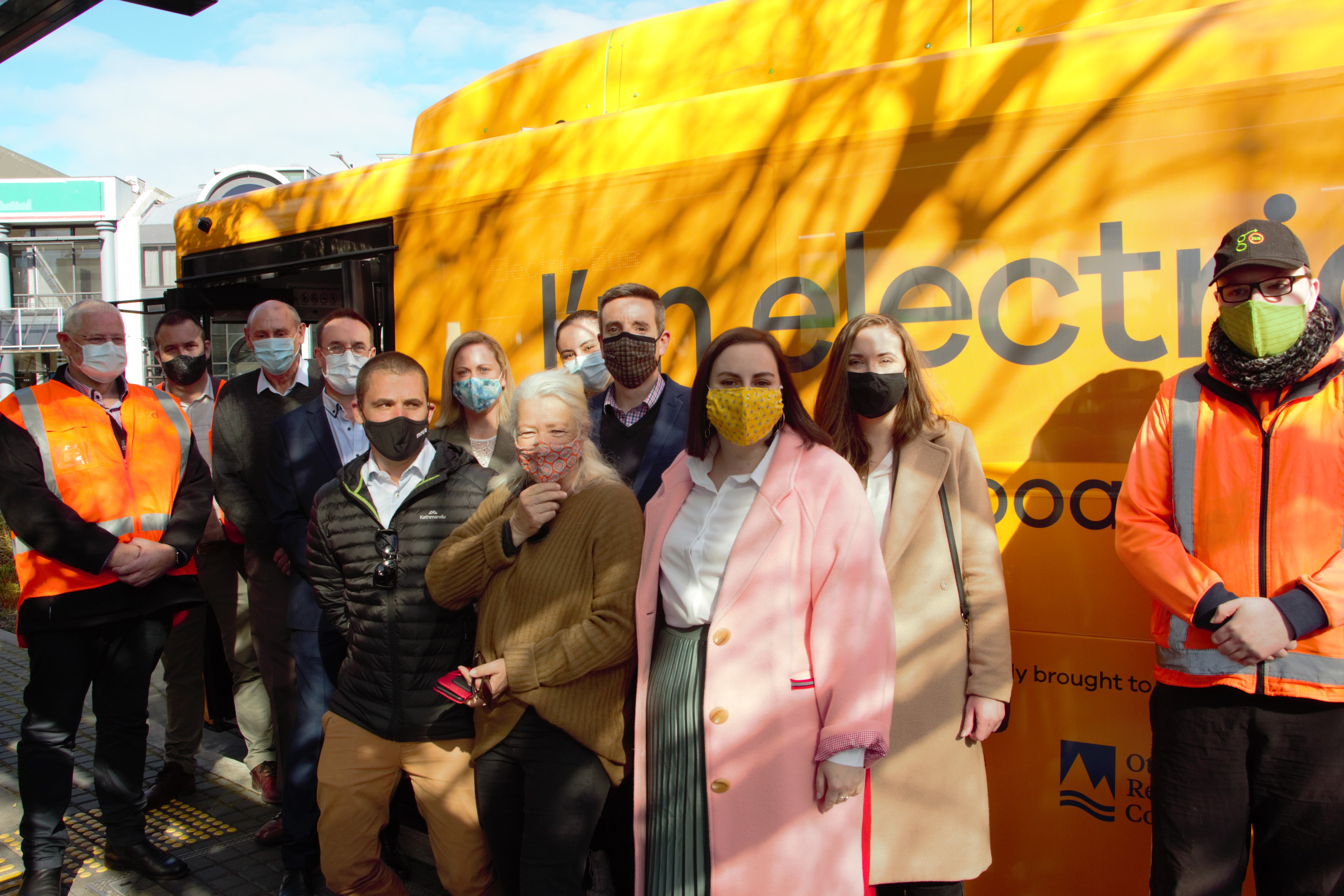Have you seen the e-Bus?
Dunedin has its first electric bus! The e-Bus joins the Orbus Dunedin fleet for October on select routes to see how the bus performs on the hills and highway and to give drivers and passengers a chance to check it out.
The electric bus trial, a collaboration between the Otago Regional Council (ORC) and Go Bus Transport, will rotate around select routes, including the #8 (St Clair to Normanby), #44 (St Kilda to Halfway Bush), #55 (St Kilda to Brockville), and the #77 (Mosgiel to City).
The Enviroline 35-seater bus has been manufactured in the South Island by Global Bus Ventures.
The e-Bus will also be stationed at the Otago Museum during a set period of days in the school holidays. More information will be shared on the Orbus Dunedin Facebook, Instagram and the Otago Museum advertising channels.
The difference an e-bus makes
An e-Bus, short for electric bus, is a bus that is powered by electricity. Most e-Buses (including the one we’re trialling) use batteries to store electricity in the vehicle. With hydroelectric power stations generating most of New Zealand’s electricity, e-Buses are some of the most sustainable ways for us to travel.
Using electricity instead of fossil fuels reduces greenhouse gas emission, and helps reduce noise and air pollution.
e-Buses are also great for city travel, because driving on city roads involves lots of accelerating and braking, which e-Buses are better at doing than diesel buses when it comes to energy. That is because e-Buses can recharge most of the kinetic energy back into batteries when they brake, increasing the efficiency and reducing the wear on the brake.
Here are some quick stats:
- Over 90% reduction in CO2 emission in comparison to diesel buses.
- Zero tail pipe emission (reduced inner city air pollution)
- Significantly quieter
- Smoother ride for both passengers and drivers
- Lighter weight and smaller size, so more energy-efficient to drive and less damage to roads
- Less materials needed to manufacture, meaning less carbon footprint
- Body made of long-lasting alloy (reusable and recyclable)
- Locally designed and manufactured in New Zealand
Lowering our carbon emissions
ORC is committed to reducing carbon emissions and improving air quality across Otago. The central government has announced that from 2025, no new fossil-fuelled buses can be introduced into service in New Zealand, and by 2035, all fossil-fuelled buses must be replaced. We are also exploring more environmentally sustainable types of vehicles with low carbon emissions.
Transport was a major contributor to Otago's total emissions in 2019. But decarbonisation is not the only way to reduce emissions. Getting more people to use public transport more often right now will make a significant impact.

The first passengers on the electric bus were, from left to right: Nigel Piper, COO Go Bus Transport; Tim Duncan CEO Global Bus Ventures; Garry Maloney Otago Regional Council (ORC) Transport; Mike Parker, Executive Vice President GBV; Ben Barlow, South Island Manager, Go Bus Transport; Gemma Wilson ORC Transport; ORC Councillor Alexa Forbes; Jean Sloan, Julian Phillips, Abbey Chamberlain and Bon Kellas, all from ORC Transport; Connor Marshall from Bus User Support Group Otepoti.
